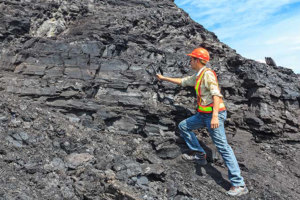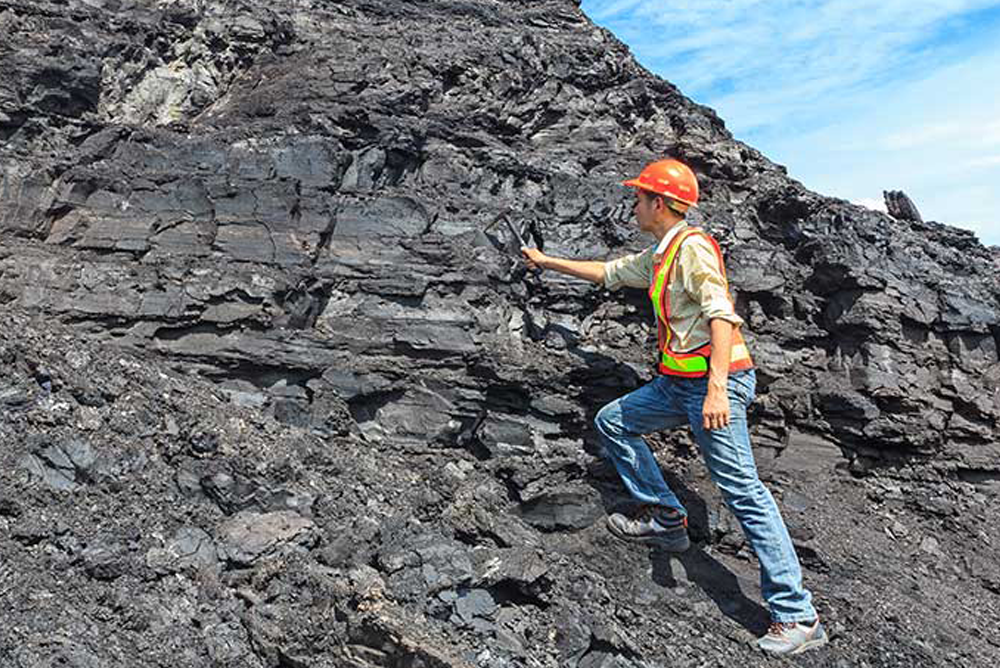Disclaimer: The information on our website is provided for general information purposes only. We make no representations or warranties of any kind, express or implied, about the completeness, accuracy, reliability, suitability or availability with respect to the website or the information contained on our website for any purpose. Any reliance on such information is therefore strictly at your own risk and we are not liable for any damages or losses arising out of or resulting from your reliance on any information contained on our website.
A geological engineer has the job of designing mines to remove minerals (like metals and coal) in a safe and efficient way to use in utilities and manufacturing. These engineers also draw up technical reports for other engineers, managers, and miners. Mining engineers arrange ways for transporting minerals to processing plants. They work mainly in remote locations in mining operations while others work near cities in sand and gravel sites. Watch a video to learn what they do.
How to Become a Geological Engineer

A geological engineer requires a bachelor’s degree from an accredited engineering program with courses in physics, geology, mine design and safety, math, and thermodynamics. Normally, laboratory and field work, along with classroom study are part of the program. Only a few schools offer mining engineering programs and need to be accredited by the ABET which bases it’s programs on faculty, facilities, and curriculum.
You can obtain a master’s degree for this career field which includes a 2-year program in more specialized studies, such as mining regulations and mineral resource development. A written thesis for graduation is often required. Engineers holding a master’s or doctoral degree often teach engineering at colleges or universities. It is not necessary for entry-level positions for a mining or geological engineer to be licensed. However, it is required for a professional engineer (PE) to have a PE license which allows them to hold more independent and leadership roles.
A PE license would require a degree from ABET accredited engineering program and passing the (FE) Fundamentals of Engineering exam, as well as about 4 years of relevant work experience and passing the Professional Engineering (PE) exam. High school students that may want to consider this occupation should take classes in science and mathematics.
Job Description of a Geological Engineer
A geological engineer has the task of designing underground and open-pit mines in a way that ensures it’s operation is environmentally sound and safe. They would supervise all construction of the mine’s tunnels and shafts and develop ways to transport the minerals to the processing plants. They also oversee an operation’s effectiveness and solve problems and provide solutions in relation to sustainability, land reclamation, water, and air pollution.
A geological engineer searches for mineral deposits and performs site evaluations. They devise ways to extract the minerals or metals in efficient and environmentally safe ways. A mining engineer would typically be more specialized in one kind of metal or mineral, like gold or coal. He or she would design and develop mines and develop the best way to extract the minerals or metal to the best advantage, gaining the most out of the deposits.
Some mining engineers work with metallurgical and geoscience engineers to study and find ore deposits while some may want to develop new equipment or direct mineral-processing operations that separate mineral from rock, dirt ,or other materials. A mining safety engineer has the duties of ensuring workers safety and adherence to state and federal regulations. They inspect the mine’s air quality, roof, walls and equipment. A mining and geological engineer should be skilled in mathematics, problem-solving, writing, and critical thinking. They should also have decision making and analytical skills.
Benefits of Becoming a Geological Engineer
Geological engineers benefit from the rewards of knowing that their work impacts the planet and people positively. There are no country boundaries, so they often travel to all parts of the world to oversee mining, potential natural catastrophes, and other work locations in the industry. Geological engineers benefit from the challenges of the job, and it never gets dull! Surveys also suggest that they have high job satisfaction. They also get to work with a team and other professionals. Geological engineers spend most of their time working outdoors instead of in an office. Lastly they are in demand! There is projected increased in job growth in this industry therefore there will be job opportunities.
Geological Engineer Career Video Transcript
Mining and geological engineers design mines above and below the ground to remove minerals and metals used by manufacturing industries and utilities. They design methods to transport mined materials to processing plants, and monitor operations for safety and efficiency. Critically, they also develop solutions to manage mines’ environmental impacts, including land reclamation, and mitigating water and air pollution. Three types of engineers typically work in mining.
Geological Engineers search for mineral deposits and evaluate possible sites, then plan how to extract the metals or minerals safely and efficiently. Mining Engineers specialize in mining a particular mineral or metal, such as coal or gold. Some develop new equipment or direct processing operations.
Mining Safety Engineers ensure that workers are safe and mines meet safety regulations. They monitor air quality, and inspect mines and equipment for possible hazards. Mining engineers often work at mining operations in remote locations, although some work in sand-and-gravel operations near cities, or at mining firms or consulting companies in large urban areas. Most work full-time, with additional hours when posted at mining sites.
A bachelor’s degree from an accredited engineering program is required to become a mining or geological engineer. Relatively few schools offer the program. Licensure is not required for entry level jobs, but many experienced engineers obtain licensure for more advanced positions.
Article Citations
Bureau of Labor Statistics, U.S. Department of Labor, Occupational Outlook Handbook, Mining and Geological Engineers.
National Center for O*NET Development. 17-2151.00. O*NET OnLine.
The career video is in the public domain from the U. S. Department of Labor, Employment and Training Administration.


